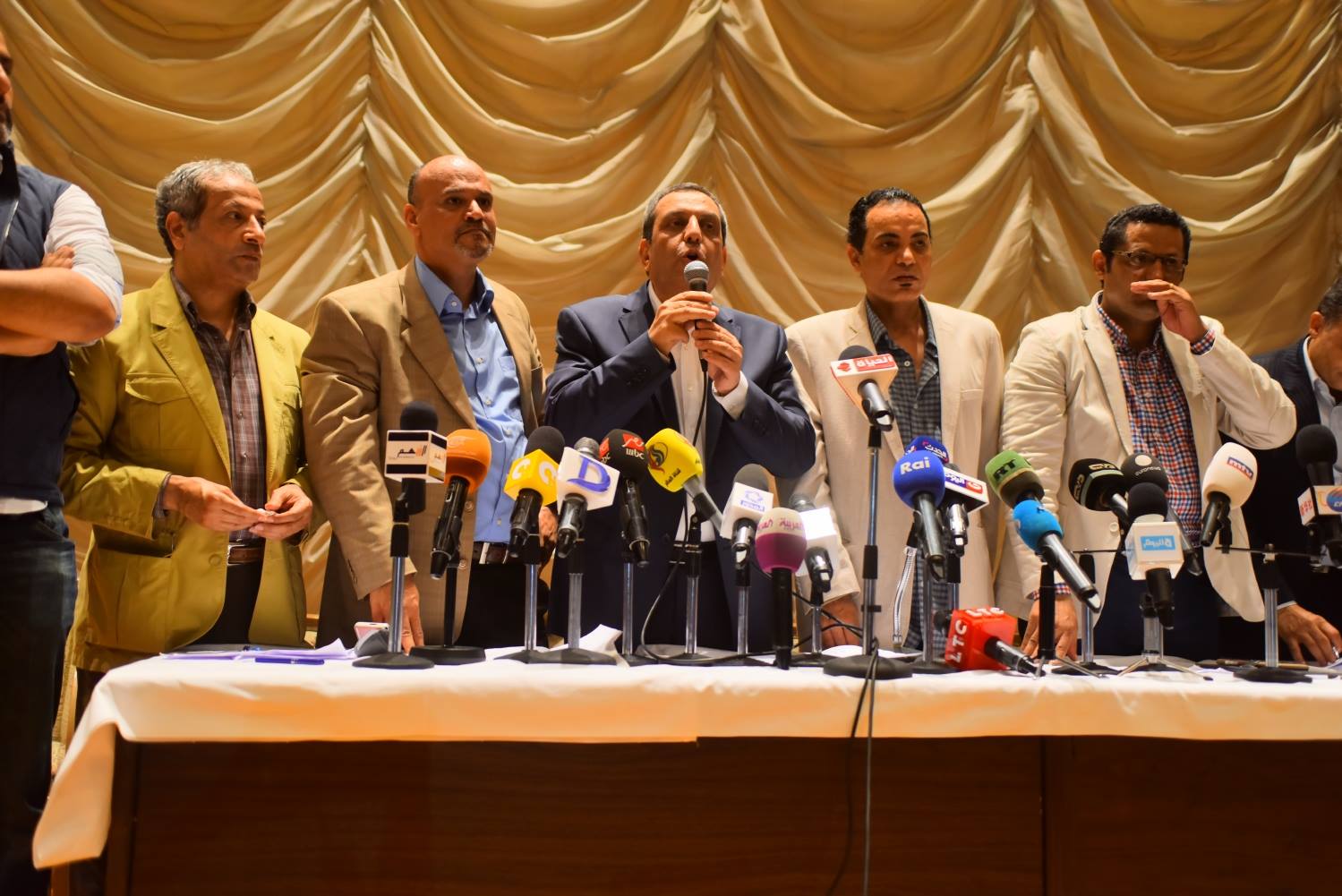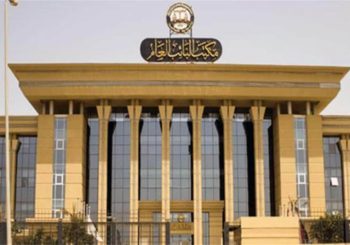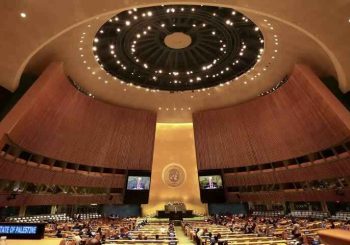Egypt’s Press Syndicate called on Wednesday for the resignation of interior minister Magdy Abdel Ghaffar and demanded an official apology from the presidency for the Sunday police raid of the syndicate building.
The syndicate’s demands also included the introduction of new legislation to outlaw attacks on journalists, the release of all detained journalists, the addition of a “No to media gag orders” banner on all print and online publications and the cessation of printing the interior minister’s name in all articles until he resigns, state-owned Ahram Online reported. The syndicate also vowed to go on strike if these demands are not met.
The syndicate held an emergency assembly meeting in the presence of several board members and prominent journalists, while at least two thousand journalists gathered on the syndicate building’s steps to defend the union and protest against the police violations against journalists over the past several days.
Police arrested Amr Badr and Mahmoud El Sakka, two journalists, from inside the Press Syndicate after security forces stormed the building on Sunday night in a move described by the syndicate’s head as “unprecedented” and a “violation of law.”
The interior ministry published a statement accusing Badr and El-Sakka of “hiding” and using the syndicate as a “safe haven” and capitalizing on the involvement of the syndicate to create a crisis and cause chaos between all parties involved. The ministry also denied the storming of the syndicate, saying that only eight police officers were sent out to arrest the journalists.
General Prosecutor Nabil Sadek issued on Tuesday a media gag order on the raid and said in a statement that the arrest of the two journalists was legally correct and was carried out based on an arrest order from the prosecution, and that there are no legal restrictions to arresting individuals from inside the Press Syndicate building.
While police cordoned off streets leading to the syndicate in an attempt to stem the flow of protestors looking to join the sit-in, which began on Sunday, Ahram Online reported several buses and microbuses with the “Tahya Masr” (Long Live Egypt) logo arriving at the scene with pro-Sisi demonstrators.
#برلمانى | الداخلية تلجأ لخطة العادلى وتستعين بـ”مواطنين شرفاء” فى معركتها مع الصحفيين https://t.co/XcyBbnqOVM pic.twitter.com/yLuug8Tah8
— parlmany (@parlmany) May 4, 2016
Translation: The interior ministry resorts to [former interior minister Habib] Adly’s strategy and relies on “honorable citizens” in its battle with journalists
Reports have indicated that the pro-government demonstrators have been allowed to gather freely amid the heavy police presence at the syndicate, causing some to call into question the interior ministry’s “selective application” of the country’s protest law.
A number of Egypt’s syndicates, including the Doctors’ Syndicate and the Lawyers’ Syndicate, and political forces have voiced their solidarity with the Press Syndicate in the ongoing stand-off between journalists and the interior ministry.
State-owned Al-Ahram also published on Tuesday a scathing editorial taking aim at the interior ministry, with the writer describing the storming of the syndicate as “unacceptable actions against freedom” on the ministry’s part.
Although the editorial was published without a byline, it remains an unexpected move by the newspaper, which is widely known for publishing editorials in support of the government an generally falling in line with the state’s discourse.
Tensions in Egypt have been on the rise for several weeks following an announcement from the Cabinet that Egypt and Saudi Arabia had signed an agreement outlining the two countries’ maritime territory, placing the disputed Red Sea islands of Tiran and Sanafir within Saudi Arabia’s territory.
The announcement triggered a series of protests despite current laws prohibiting the gathering of a large number of people without prior consent from the interior ministry. The demonstrations began by decrying the agreement and the secretive manner in which it was reached but quickly morphed into anger against the interior ministry and its heavy-handed strategies of dealing with protestors, which included nationwide arrests of activists, journalists and lawyers.







Comments (0)